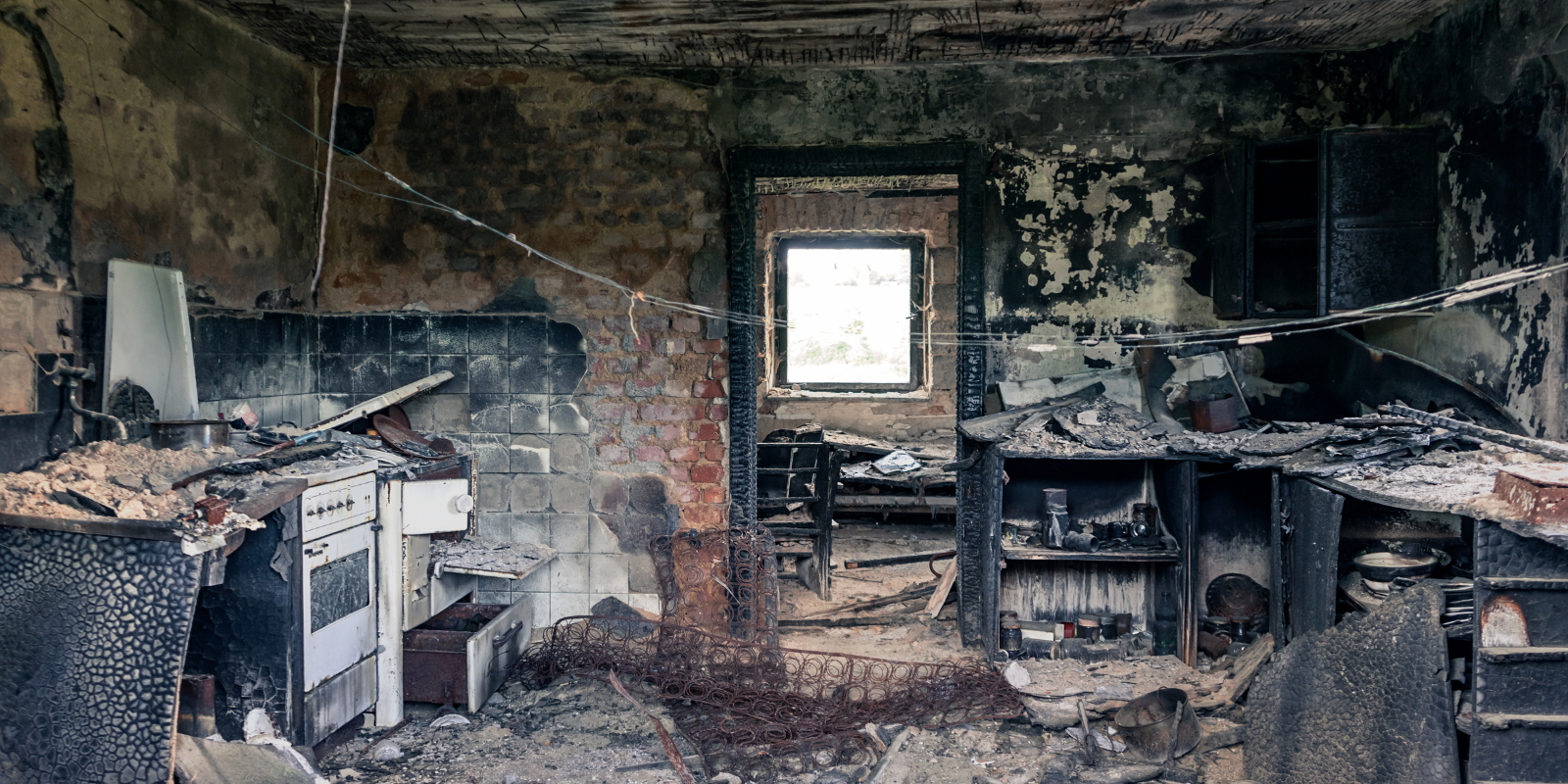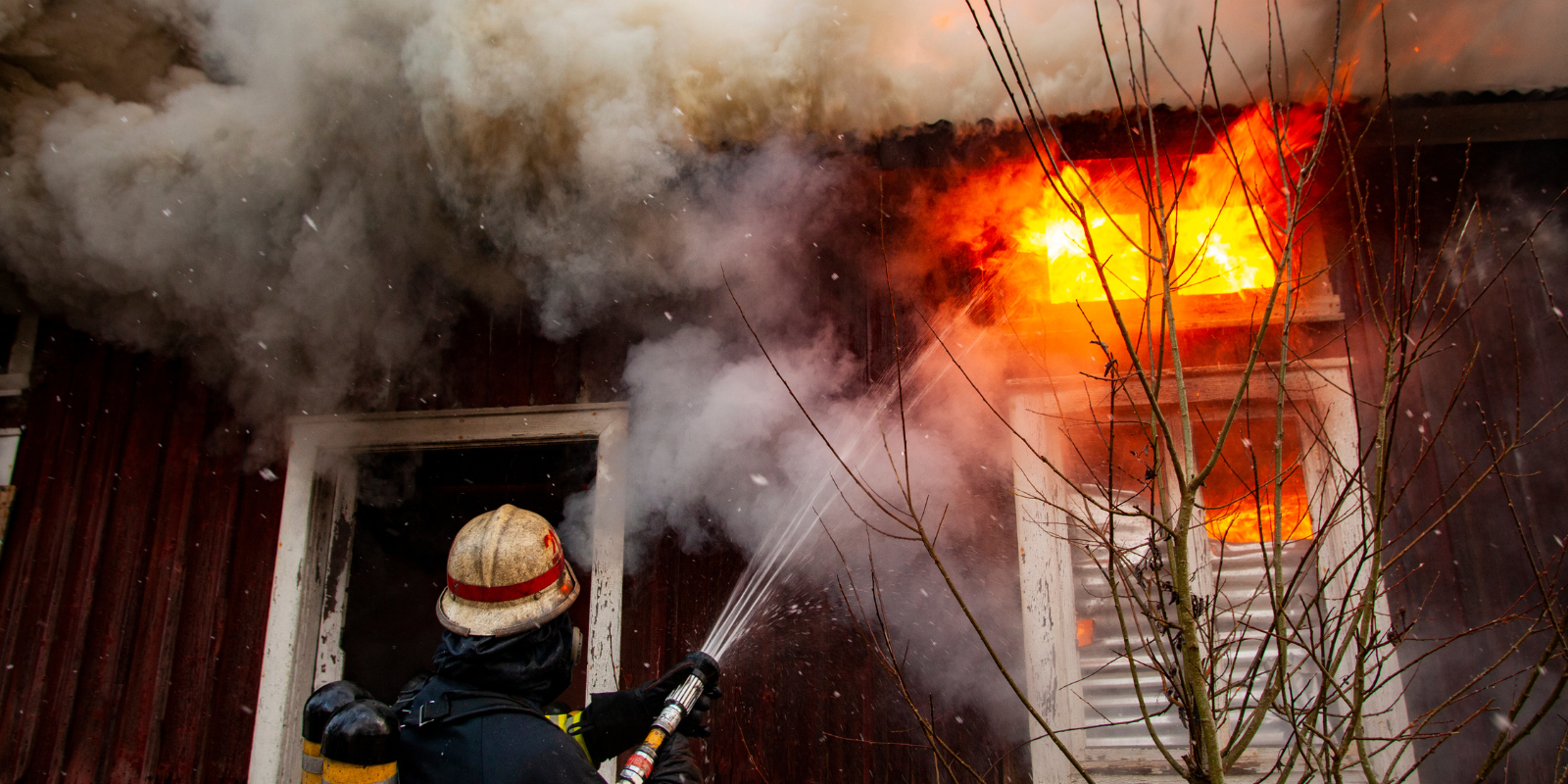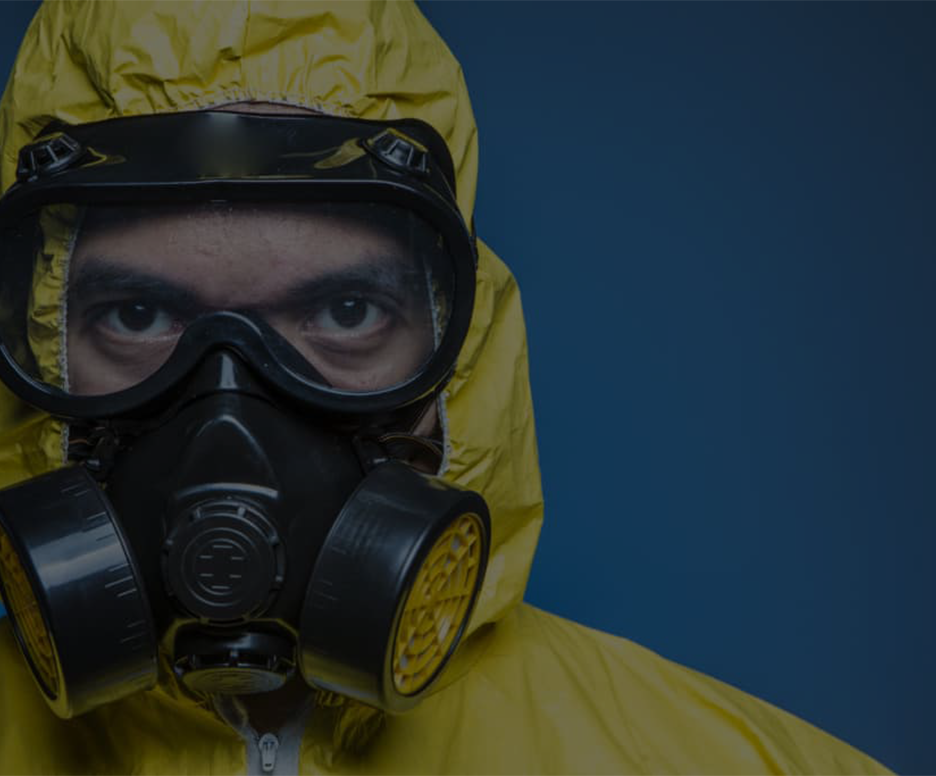
The Dos and Don’ts of Commercial Fire Damage
By: 911 Water Damage Experts
Fire disasters have always been a cause of concern, especially in commercial settings.
The fallout from a fire in a commercial building not only results in structural damage but can lead to significant economic losses, a downturn in productivity, and, in the worst scenarios, loss of life.
Understanding the dos and don’ts of managing commercial fire damage is critical in ensuring safety and a swift recovery.
In this article, we’ll navigate the maze of post-fire steps, provide historical context through past fire tragedies, and offer preventive insights.
Let’s get right into it.
Top Dos And Don’ts Of Commercial Fire Damage
Dos:
- Immediate Notification: Notify authorities and emergency services immediately.
- Safety First: Ensure the evacuation of all employees and staff.
- Document the Damage: Once safe, take photographs and document the extent of the damage for insurance claims.
- Seek Professional Help: Employ fire restoration professionals to assess and repair the damage.
- Protect Undamaged Property: Try to safeguard unaffected areas to prevent further losses.
- Ventilate the Premises: Open windows and doors to dissipate smoke and reduce lingering odors.
- Clean Residues: Use appropriate cleaners to remove soot and residue from surfaces.
- Check Electrical Systems: Before resuming work, ensure all electrical systems are intact and safe.
- Communicate: Inform all stakeholders about the incident and the steps being taken.
- Review Fire Safety Protocols: Post-restoration, revisit and upgrade fire safety measures.
Don’ts:
- Don’t Use Electrical Appliances: Until they’ve been checked and cleared.
- Avoid Consuming Contaminated Food/Water: Any food or beverage exposed to fire or smoke should be discarded.
- Don’t Handle Chemical Containers: Any chemical containers exposed to heat might be unstable.
- Avoid DIY Restoration: Professional expertise is essential for effective restoration.
- Don’t Enter without Clearance: Wait for the clearance from authorities before re-entering the building.
10 Deadliest Fires In US History
- Peshtigo Fire (1871, Wisconsin): The deadliest wildfire in American history, it claimed an estimated 1,200-2,500 lives.
- Great Chicago Fire (1871, Illinois): Coincidentally on the same day as the Peshtigo Fire, it killed about 300 people and destroyed a large part of Chicago.
- Cloquet Fire (1918, Minnesota): Around 1,000 lives were lost, making it one of the deadliest in Minnesota history.
- The General Slocum Disaster (1904, New York): A steamship fire that led to the death of over 1,000 individuals.
- The Triangle Shirtwaist Factory Fire (1911, New York): A tragic event that killed 146 garment workers.
- Iroquois Theater Fire (1903, Illinois): A fire broke out in a theater, claiming over 600 lives.
- Great Hinckley Fire (1894, Minnesota): This forest fire resulted in the loss of over 400 lives.
- Texas City Disaster (1947, Texas): An industrial accident leading to fire and explosion, causing nearly 500 deaths.
- Cocoanut Grove Nightclub Fire (1942, Massachusetts): A devastating fire in a nightclub resulted in 492 deaths.
- Our Lady of the Angels School Fire (1958, Illinois): A tragic event where 95 individuals, mainly children, died due to a school fire.
10 Safety Tips During A Fire
- Raise the Alarm: Use fire alarms to alert everyone in the building.
- Evacuate Calmly: Avoid panic; evacuate in an orderly fashion.
- Use Stairways: Avoid elevators during a fire.
- Stay Low: Smoke rises; crawl if visibility is poor.
- Use a Cloth: Use a wet cloth to cover your nose and mouth to avoid inhaling smoke.
- Never Re-enter: Once out, stay out.
- Know the Exits: Always be aware of multiple exit routes.
- Close Doors Behind You: This can help slow down the spread of fire.
- If Trapped, Signal for Help: Use lights, sounds, or cloth to signal your location.
- Stop, Drop, Roll: If your clothes catch fire, stop, drop to the ground, and roll to smother the flames.
10 Tips On How To Prevent Fires
- Install Smoke Alarms: Ensure they’re functional and check them regularly.
- Maintain Wiring: Regularly check and maintain the electrical wiring of the building.
- Safe Storage: Store flammable materials safely and away from ignition sources.
- Emergency Exits: Ensure exits are clearly marked and pathways are unobstructed.
- Educate Employees: Regularly conduct fire safety training.
- No Smoking Indoors: Enforce strict no-smoking policies inside the premises.
- Maintain Equipment: Regularly service and check all equipment, especially those prone to overheating.
- Fire Drills: Conduct regular fire drills to prepare everyone for emergencies.
- Fire Extinguishers: Ensure they’re accessible, and employees know how to use them.
- Safety Regulations: Adhere to all local fire safety regulations and standards.
Top 10 FAQs about Commercial Building Fires
- What’s the most common cause of commercial fires?
- Electrical malfunctions are among the top causes.
- How often should fire alarms be checked?
- It’s recommended to check them at least bi-annually.
- What type of fire extinguisher is best for commercial premises?
- It depends on the nature of the business, but ABC extinguishers are versatile and suitable for multiple fire types.
- How often should fire drills be conducted?
- At least twice a year.
- Are sprinkler systems effective in controlling fires?
- Yes, they can significantly reduce the spread and intensity of fires.
- Can I use water on all types of fires?
- No, especially not on electrical fires or grease fires.
- How should chemicals be stored to prevent fires?
- In approved containers and storage cabinets, away from ignition sources.
- Why do electrical systems cause fires?
- Overloading, faulty wiring, or malfunctioning equipment can lead to fires.
- Are commercial buildings required to have fire escape plans?
- Yes, it’s a crucial safety requirement.
- How do I create a fire safety policy for my commercial building?
- Consult with local fire departments or safety consultants for comprehensive guidance.
Conclusion
While commercial fires are disastrous, understanding the dos and don’ts of post-fire management, being equipped with safety tips, and having prevention strategies can significantly reduce risks and damages. A proactive approach towards fire safety not only safeguards assets and business continuity but, most importantly, saves lives.
If you have any questions about our article, “Mould Inspections: Safeguarding Your Home Investment” or need water damage restoration services feel free to call us at 1-833-WE-DRY-IT any time 24/7/365 or chat with us on LiveChat or social media.
Related Posts
Water Damage Restoration Articles
How to prevent home storm damage
What you can expect from a fire damage restoration company
Water damage prevention tips from the most common problems we’ve seen
Top causes of water damage in commercial buildings and how to find them
Must-know water damage tips: What to do after your house floods
What does good water damage restoration look like?
DIY water damage restoration and the hidden dangers
How to choose the right water damage company
Flast floods: What to do before, during and after a flash flood
What to do when your attic leaks?
Mould Removal Restoration Articles
5 Signs You Have Mould Growing In Your Walls
“Can I Remove Mould Myself?” Our Mould Removal Experts Have Answers
7 Must-Know Reasons Why You Should Get A Mould Inspection Before Buying A House
Does Mould Attract Bugs? Yes And Here’s What Kind And Why
How To Remove Mould From The Attic [Mould Prevention Tips Inside]
How Rain Causes Mould Growth-Prevention Tips Included
Must-Know Tips: How To Remove Mould In Your Basement
Fire Damage Restoration Articles
Fire prevention tips for the summer
How to clean up after a house fire
Fire damage restoration checklist
Fire damage tips: 6 hazards property owners miss
How smoke from fires can negatively affect your health
What are the most common causes of house fires?
10 helpful smoke damage cleaning tips
Related Water Damage Services
Fire damage restoration services
Water damage restoration services
Emergency cleanup services
Mould removal services
Weather damage services


